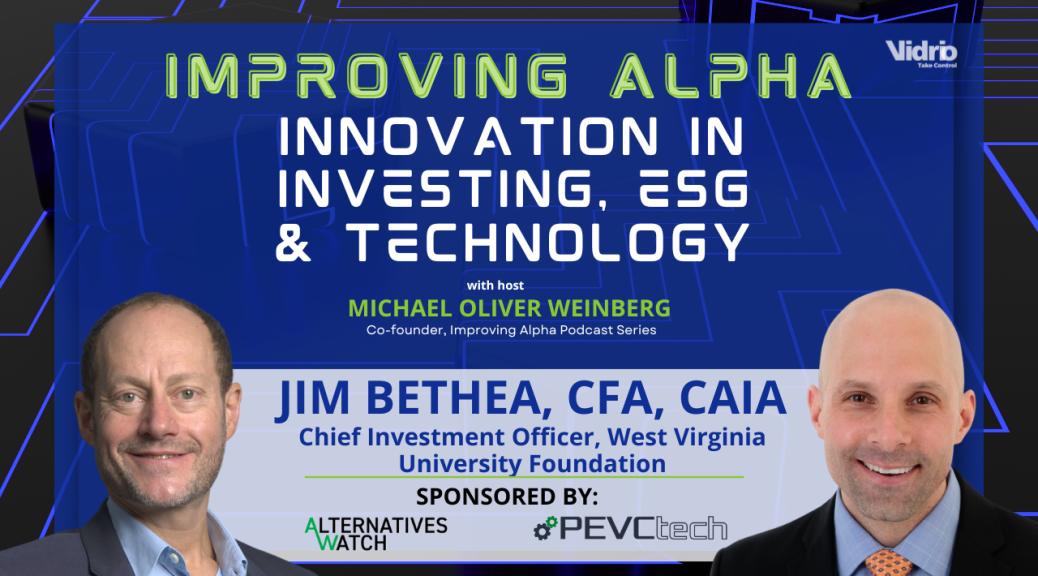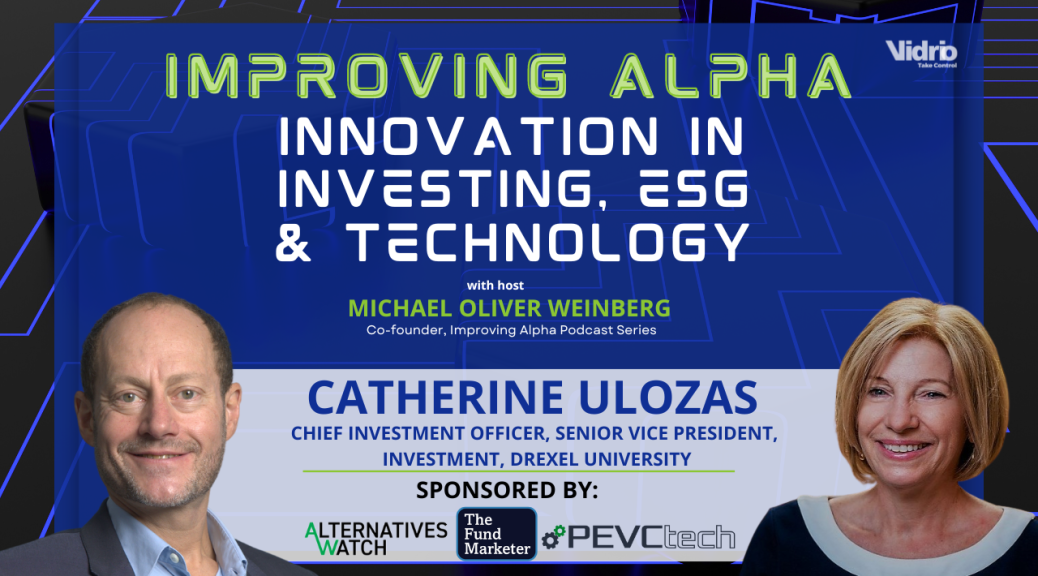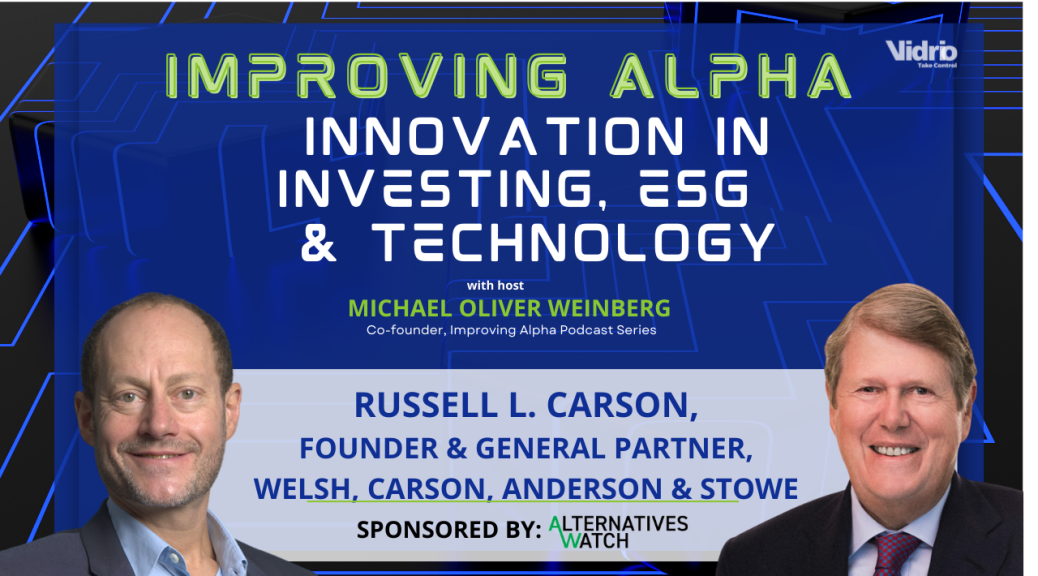
Improving Alpha: Jim Bethea on Resetting the Learning Process of Endowment Performance
Podcast: Play in new window | Download | Embed
Many talented endowment CIOs evolve from engineering backgrounds, consultancies, and other disciplines. These past experiences allow CIOs to transform investment office teams, broadening the search for alpha through improved portfolio construction, balancing liquidity concerns, outpacing endowment peers, and creating an environment where investment staff are valued for their continued contributions.
On the latest Improving Alpha podcast, Michael Oliver Weinberg is joined by Jim Bethea, CFA, CAIA, Chief Investment Officer, West Virginia University Foundation.
By the time this episode airs, Jim will have been in the WVU Foundation role for only a few months, but the insights that he provides from his time at RVK Consulting, the University of Iowa Center for Advancement, and now the WVU Foundation are priceless for institutional asset owners.
Key takeaways from Jim Bethea’s discussion with Michael include:
- What were the lightbulb moments that made Jim decide to make a switch to endowment portfolio management?
- When sitting in the CIO seat at a major endowment, why should you look less at inflation and more towards fee spending and risk tolerance? Risk in PR, liquidity, etc.
- What is Jim’s mindset when the campus needs capital, and how to navigate that when considering future fiscal year projections?
- Staff buy-in and how that helps to accelerate an investment edge or interest level across the team on the search for alpha across various asset classes. More importantly, if there isn’t an edge in a given asset class, can beta be leveraged to generate median returns?
- Why having an ESG policy might be hurting your approach to managing total portfolio returns.
- How AI and future innovations in technology will be shaping his portfolio allocations.
- Red flags in VC fund managers and why you should be worried as an endowment CIO if these managers start touting 3X gains.
- Reshoring efforts, incremental capital destination with GPs, retaining staff, and more!
Resources:
Connect with Michael Oliver Weinberg:
Connect with Jim Bethea:
About Our Guest:
Jim Bethea is the Chief Investment Officer of the West Virginia University Foundation. He oversees the management of the Foundation’s investment portfolio, bringing decades of experience in institutional investing, manager research, and portfolio construction. Prior to joining WVU, he served as the Senior Vice President and Chief Investment Officer at the University of Iowa Center for Advancement, where he led investment strategy and expanded the endowment’s portfolio diversification.
The information covered and posted represents the views and opinions of the guest and does not necessarily represent the views or opinions of Vidrio Financial, and/or our host, Michael Oliver Weinberg. The Content has been made available for informational and educational purposes only. The Content is not intended to be a substitute for professional investing advice. Always seek the advice of your financial advisor or other qualified financial service provider with any questions you may have regarding your investment planning.
The release date may not correspond to the recording date.

